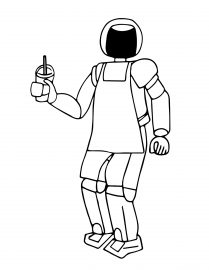A present thank you to the future Mr. Roboto
by Kyle Dang/Special to The Guardsman
Automation in the workplace has been putting people out of work since the Industrial Revolution, and now a new revolution is on the horizon.
According to an Oxford University study from 2013, 47 percent of American jobs are at risk of being computerized in the next 20 years. While that might seem like a long time off, changes in the structure of how we work are already visible.
Self-driving cars are about to revolutionize the transportation industry as trucks begin transporting goods autonomously, and ride-sharing companies like Uber create fleets of driverless vehicles.
Autonomous cars are just the first of many new technologies. As a City College student, this concerns me quite a bit.
By going to college, I am gambling several years of my life on the hope that a degree will open up new opportunities for me. Ostensibly, those opportunities would be in the form of job offers.
But what if the job market changes so thoroughly that a degree doesn’t mean anything? Almost every industry in the country is being or will be affected by automation.
These days it’s not China taking all of America’s manufacturing jobs, but intelligent, skilled and cheap robots.
On May 25 of this year, BBC News reported that Foxconn Technology, a supplier for both Apple and Samsung, replaced 60,000 human jobs with robots at a factory in China’s Kunshan region—and that was just one factory.
While jobs in the manufacturing and transportation industries face immediate threat, jobs that require creativity, empathy and interpersonal skills are beyond the capability of current technology, or even technology in the near future.

Careers in teaching, social work and home care work, for example, are at low risk of computerization. Essay-grading software exists, but don’t expect a robot grade school teacher anytime soon. At least, not one that is operating without adult supervision.
During the Industrial Revolution, as menial human jobs were replaced by cheaper, safer and more efficient machines, workers who lost their jobs found new careers in fields that were only possible because of that automation.
On Oct. 27, 2016, Uber released a white paper explaining its plans for Uber Elevate, which aims to provide electric flying cars driven by pilots.
If our current technological boom follows historical models, many jobs will be created for every job that is lost. In 2015 Gartner, Inc. stated that 4.4 million IT jobs were created globally to support big data, and the demand for IT workers continued since.
A lack of skilled workers means only one-third of those IT jobs will be filled. Many computers can do the jobs of knowledge workers just as well or better, and are only going to get more skilled.
If there is a particularly frightening aspect of automation, it’s that there is no pick and choose about it. These changes are coming, and I don’t have any control over it.
I can choose not to sign up for Facebook, or even not to use a smartphone, but there’s no convincing a megacorporation that they shouldn’t do everything they can to optimize their operations. But just because I don’t have control over it doesn’t make it wrong, or necessarily bad for me or human society as a whole.
As we look forward to a future made easier and more comfortable by automation, there are some who envision a world where we won’t have jobs at all.
Ideas like universal basic income become feasible when we have whatever we need designed, manufactured, and distributed cheaply and efficiently by machines.
The idea of universal basic income is that, freed from the yoke of necessary labor by robots, governments would take the profits and provide every citizen with enough money to pay rent, buy clothes and feed themselves.
I can’t help feel intoxicated by the idea of that kind of freedom.
Imagine your child growing up, knowing that it will always have its basic needs provided for. I can’t think of a more human fantasy than that. And we stand at the precipice of a world where that fantasy could be reality.
It is not necessarily the shape of things to come, but it is one of the possibilities for an inspiring future. I don’t know what’s next in store for humanity, but I can’t help but feel incredibly lucky to be alive at this turning point in our collective journey.
